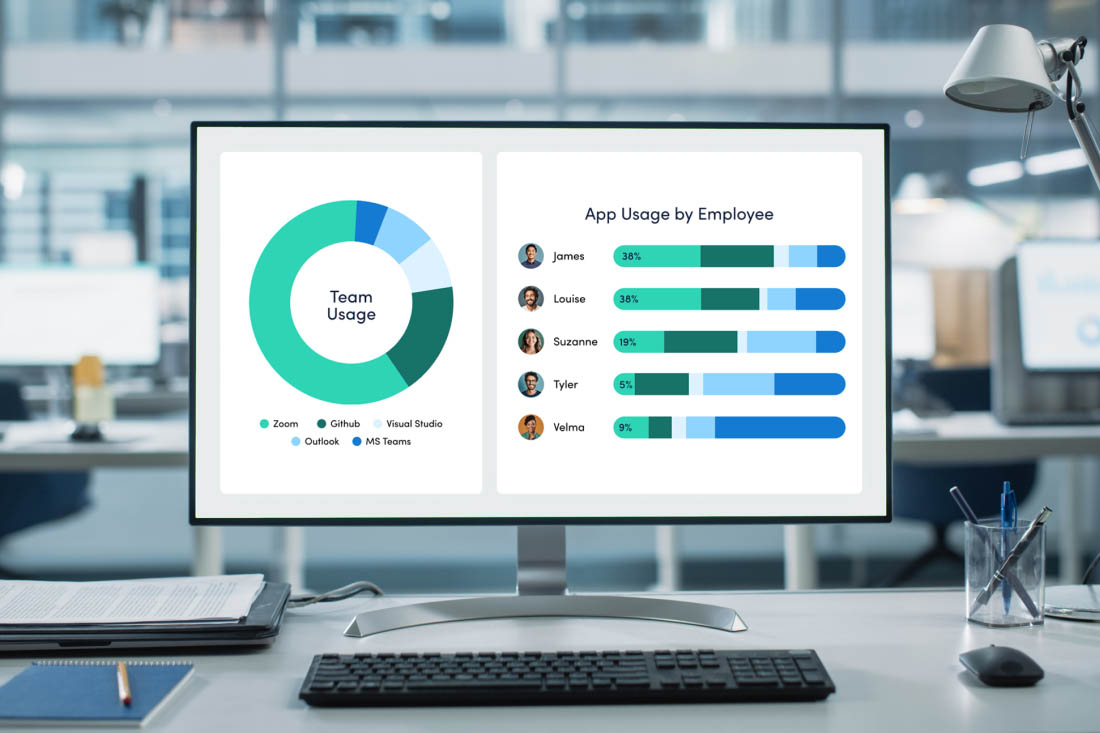In today’s fast-paced and competitive work environment, overworking employees has become a common practice that can have serious consequences. Understanding what overworking means and how often it happens can help leaders grasp the magnitude of the issue and be better prepared to prevent it.
In this post, we’ll discuss the consequences of overworking employees for your business and solutions to address the issue.
When are employees overworked?
Employees are considered to be overworked when they’re doing more than they can handle, which can mean working longer hours or at a faster pace that causes stress. Working longer or harder than normal for brief periods is common, but employees who do this consistently will become overworked after repeatedly exceeding their energy limits. The consequences of overworked employees are far-reaching and can impact a businesses’s:
- Employee turnover and retention rates
- Team dynamics and morale
- Employee engagement
- Quality of work
- Customer satisfaction
Causes of overworked employees
There are many reasons employees may be working too much or harder than they’re expected to. In many scenarios, a work culture can reward employees for working longer hours, especially with paid overtime or opportunities for advancement. Employees may push themselves to work extra to keep up appearances or because they’re afraid of letting colleagues down. Some organizations will overload employees with work without knowing they’ve done so, especially if managers contact employees after hours without realizing they’re setting a bad precedent.
Here are a few specific times when employees are more likely to be overworked:
- After layoffs or when the employee head-count is reduced
- During busy seasons, especially for sales-based or retail organizations
- When a business has increased goals or targets
- To make up for other employees who are unavailable to work, whether because they’re out of the office or aren’t keeping up with their own work
- If a business has set unattainable or unrealistic goals and expectations, such as high revenue targets or sales goals
- When an office has switched from in-office to remote work, as employees may have difficulty drawing a boundary between their work and home life
- When leadership or management sets a standard of long working hours for themselves and employees feel they need to match it
If an employee feels that they can’t talk about their workload without being punished or being viewed as a complainer, they may continue to complete work beyond their emotional or physical capacity. This can lead to an unhealthy work environment and can have serious impacts on an employee’s physical and mental health, which can in turn present consequences for the organization.
5 consequences of overworking employees for your business
Overworking your employees, even by accident, not only affects individuals but also has far-reaching and long-term consequences for your organization. Here are the five most impactful consequences of overworking employees:
1. Employee turnover and retention
Employees who feel overwhelmed are more likely to seek work elsewhere, or just quit working altogether if they’re experiencing burnout. They may seek better job satisfaction or work-life balance at another company. You may have a hard time keeping employees in your organization or recruiting new workers as word spreads from disgruntled former employees.
2. Team dynamics and morale
Teams can be affected by overworked individuals in a number of ways. If an overworked employee misses deadlines, other team members will have to pick up the slack. They may also spread negativity and low morale due to their exhaustion. Employees may lose trust in each other, which can affect team dynamics. It’s often the case that an entire team will be experiencing similar issues with their workloads, which can mean everyone suffers.
3. Poor employee engagement
Low employee engagement is often a sign that employees are overworked. Employees who feel overwhelmed are less likely to volunteer their ideas or participate in team-building activities. This can mean your business misses out on innovation and growth. Disengaged employees may also be less motivated to point out issues and mistakes that others may have missed, which can lead to further problems down the line. Severe cases of low engagement can even be considered “quiet quitting”, where employees remain in their roles but mentally check out.
4. Poor quality of work
Overworked employees may not have the chance or mental bandwidth to double-check their work. When they’re unable to concentrate on tasks or feel rushed to complete them, the quality of their work can suffer. This can mean other employees have to spend more time redoing work for them, or your organization may be putting out an inferior product.
5. Low customer satisfaction
As employees work more hours a week than they can handle, they may lose their ability to effectively handle customer issues. They may also lose interest in keeping customers happy because they’re emotionally, mentally and physically exhausted. This can mean lower revenue for your business and may even mean developing a bad reputation in your industry.
How to identify if employees are overworked
Signs of overworked employees may not be obvious at first glance, but there are several ways to tell if your employees have too much on their plates.
- High absenteeism or sick days: Employees who work too much can experience employee burnout as their stress levels get higher and higher. Working too much can contribute to serious health problems, including high blood pressure, heart disease and physical and emotional exhaustion. These employees may call out of work to take care of their health problems or stop showing up when they’re feeling overwhelmed.
- Presenteeism: You may see overworked employees take fewer sick days or holidays when they’re overworked. This may seem like a positive for your business, but employees who power through when they’re sick are more likely to harm themselves or your business than those who call out when they need a day off.
- High levels of overtime: If employees are regularly working beyond their normal work schedule, this may be a sign that they’re overworked. While many employees enjoy the extra money that comes when they work overtime, when any employee is clocking a lot of extra hours, it can mean that they’ve got more work to do than they can realistically complete.
- Missed deadlines: When an employee has more work than they can physically or mentally complete, they may have trouble prioritizing or keeping track of deadlines. This can lead to missed deadlines, or to deadlines that have to be moved back further and further.
- Emotional reactivity: Human beings need time to recharge for their mental and physical health. An employee who can’t unplug because they have too much to do will face heightened levels of stress, which can lead to emotional outbursts.
Avoid the consequences of overworking employees with ActivTrak
Finding ways to prevent overworked employees can help your business thrive. If your organization is experiencing the consequences of overworked employees, ActivTrak’s Workload Balance feature can help.
By using ActivTrak, you can quickly determine which employees are working too much and which employees may need more work to help you balance workload. You can also get notifications when employees are showing signs of burnout risk or overwork. The tool allows you to set healthy work hour goals and compare them to your employee metrics. You can also see when employees are most and least productive, which can help you plan breaks or shift changes.
Get a free demo of ActivTrak to find out how to prevent overworking your employees today.





